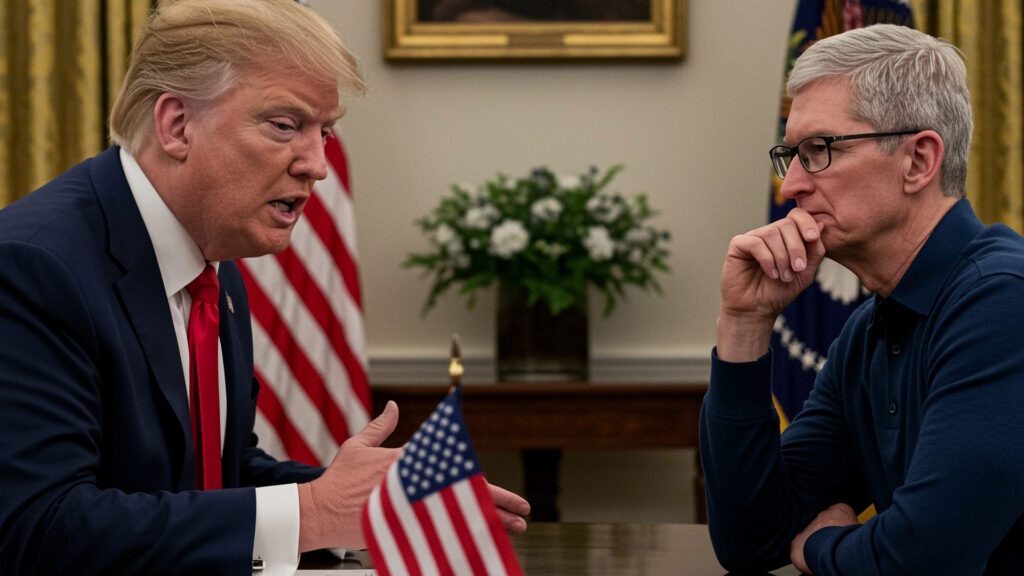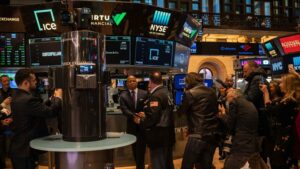Apple recently announced that the company will contribute $100 billion investment in US manufacturing, bringing its total investment to $600 billion over the next four years. The decision was made in order to avoid President Trump’s 100% tariffs on imported semiconductors and chips, which has improved sentiment among investors and caused Apple’s stock price to surge.
Breaking Down the Investment
The investment of $100 billion from Apple is an addition to the $500 billion commitment that was made in February, which included plans for opening a new factory in Houston in order to produce more advanced servers for AI, and the creation of 20,000 jobs in research and development. ⁽¹⁾
Apple CEO Tim Cook spoke at the White House alongside President Trump, where he stated that the new commitment involves agreements from 10 US tech companies to expand manufacturing. Apple’s total investment sums up to $600 billion over the next four years. ⁽²⁾
President Trump also emphasized that the investment represents progress towards fully manufacturing iPhones in the US. He also announced that tariffs on imported chips will be exempted if semiconductor manufacturers bring their operations to the US, providing Apple with an incentive. ⁽³⁾
Importance of US Manufacturing
Apple’s decision to commit to this investment comes amid increasing pressure to reduce reliance on foreign manufacturing, particularly in China, due to geopolitical tensions such as US trade tariffs.
Historically, major companies like Apple have favored operating in regions with low labor and resource costs, such as China and India, as well as locations with less strict regulations. The announced 100% tariff on semiconductors is an objective by Trump to bring production back to the US. ⁽⁴⁾
The US also is working to improve its strength in its semiconductor industry through the CHIPS and Science Act, which supports domestic chip production. As chip demand continues to grow, especially for AI innovation, the US is willing to claim leadership in the semiconductor industry, which has been dominated by countries like South Korea and Taiwan. ⁽⁵⁾
Challenges and Concerns
Despite the optimism, shifting manufacturing to the US could lead to higher costs such as higher labor and resource costs which could pressure major US tech companies that are trying to avoid tariffs on their imported products. The increased costs imposed on producers could be passed on to consumers, with the iPhone 16 priced at $1,000. ⁽⁶⁾
Apple investors are also concerned on the company’s challenges in China where Apple closed a store last month, stating competition growth and pressure. Apple also has not yet matched the AI successes of other tech giants, adding pressure to innovate.
Apple Takes the Lead in Market Gains
Apple stock rose 7% since the company announced its investment commitment to boost US manufacturing on Wednesday.
The investment aligns with President Trump’s “America First” policy, which aims to promote domestic production and reduce reliance on foreign imports.
Looking Ahead
Apple continues to dominate the smartphone market, with the iPhone remaining highly favored by consumers. However, competition in China and slower progress in AI innovation could pose challenges to its future growth. The $100 billion investment shows Apple’s commitment to support US policy changes as the tech titan navigates through economic changes and trade tensions.
Whether this will result in fully US-made iPhones, as Trump envisions, remains uncertain, but it represents a bold step toward strengthening Apple’s domestic presence.



